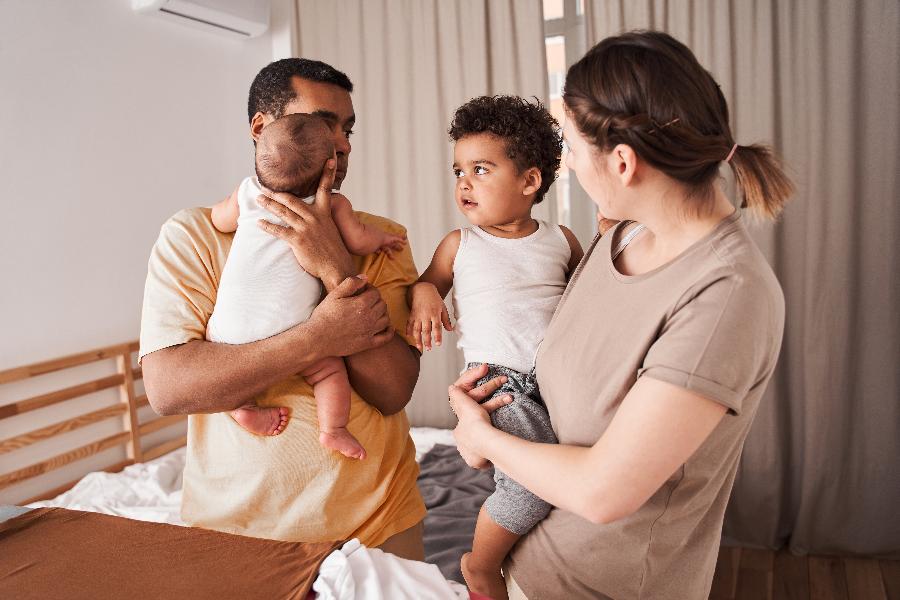Becoming a parent
Support for parents
Becoming a parent wether that's through birth, adoption or foster caring can be exciting, challenging and sometimes overwhelming.
Support is available to parents across Sunderland, either through fun activities where you can brush up on your parenting skills or through parenting programmes and support groups that offer that extra support when you need it. Visit the Family Hub social media pages for more information.
We know that becoming a parent/carer can put pressure on a relationship but there is support available:
- Parent relationship support leaflet (PDF, 245 KB)
- Mediation service leaflet (PDF, 167 KB)
- Triple P parenting advice (PDF, 45 KB)
Secure attachment
Babies recognise their parent's voice from the womb and will recognize their face by the end of their first day. Babies are born ready and wanting to communicate. Mams, dads and partners can encourage this by talking and singing to their bump, and also having lots of eye contact and skin to skin contact once their baby is born.
Daily positive communication with our children will support their emotional, language and social development. Singing, especially action songs like 'heads, shoulders, knees and toes', not only help them with gross and fine motor skills, their ability to concentrate and focus, and fulfil their need for play and touch, it is also another way that babies feel loved.
Play helps children learn about themselves and the world around them and is an important way to develop early communication and social skills. Regular play is a simple and easy way to benefit your baby, and for both of you to have fun together. Babies are born to be sociable and love to interact. Play is a natural way of developing their communication and social skills. It is enjoyable for babies and adults and helps them to bond.
Maternal mental health including postnatal depression
Many women feel a bit down, tearful or anxious in the first week after giving birth. This is often called the "baby blues" and is so common that it's considered normal. The "baby blues" don't last for more than two weeks after giving birth.
If your symptoms last longer or start later, you could have Postnatal depression. Postnatal depression can start any time in the first year after giving birth.
Additional support for parents
If you have experience of the following, they can all impact the health and wellbeing of mother and baby:
- A traumatic birth
- A history of stillbirth or miscarriage
- Relationship difficulties or social isolation
If any of this applies to you, it is a good idea to talk to someone about how this experience has
informed your parenting journey, and any challenges you might be facing because of it.
Check out our emotional health and wellbeing page for more information and some tips.
Remember you can always contact your Family Hub, midwife or health visitor if you need any help or advice.
Services
- Maternal mental health - South Tyneside and Sunderland NHS Foundation Trust
- Antenatal Advice - South Tyneside and Sunderland NHS Trust
- Change4Life Sunderland Facebook page
Maternity Services at Sunderland Royal Hospital
Use the contact numbers below to reach antenatal departments of Sunderland Royal Hospital:
- Antenatal Day Unit - 0191 569 9181
- Antenatal Clinic - 0191 569 9036
- Delivery Suite - 0191 569 9777





